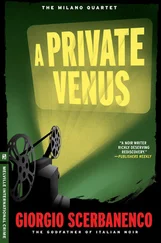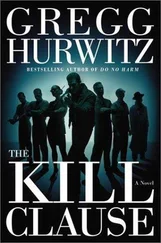He stood on the wharf in front of the large cruiser, lit only by the service lights. There was no movement on the boat. He lit a cigarette and smiled. He wondered what the bosses of the tobacco company would say if they saw him smoking a rival brand of cigarettes. He strolled along the quay to finish his cigarette, leaving the yacht behind him. The person he was waiting for, if he knew anything about women, would not arrive for another half-hour, twenty minutes if he was lucky.
He’d spent the entire evening talking to Serena, a New Zealander he had met by chance at the party. He didn’t really understand what she was doing in Monte Carlo, except that she was there for the regatta. She wasn’t on the staff of any of the teams, each of which required extensive personnel in addition to the crews and reserves: technicians, designers, press agents, trainers and masseurs. One team had even brought a psychologist, though their boat was not considered particularly competitive and gossip around the dockyard had it that he was there more to comfort the crew after losing than to gear them up before the race.
Serena was probably just one of those rich girls who travelled the world on her family’s money, pretending to be interested in one thing or another. Sailing, in this case.
You know, the wind in your hair and the sound of the prow cutting the waves and that liberating feeling…
Or something like that.
Hudson was not usually so susceptible to female charms. Not that he didn’t like women. He was straight as they come and a pretty girl was always a great way to pass the time, especially if she had class. He had his affairs in New York, and they were fulfilling but without commitment, by mutual agreement. He could take off at any time for a regatta without explanations, without tears and handkerchiefs waving on the pier in the hand of a sad girl mouthing the words, ‘Why are you doing this to me?’ He liked women of course, but he didn’t need any trophies.
Tonight, however, was special. The lights, the people, the applause – a little narcissism was understandable. He was there doing what he loved most in the world, in one of the world’s most beautiful places. It was captivating. He could not deny that Monte Carlo was magical to him. After all, he was an American through and through. The beauty and uniqueness of the place and all those stories of princes and princesses…
Serena’s eyes had flashed at him. What’s more, under her evening dress she had a gorgeous pair of breasts. They had chatted about this and that. Sailing, of course. Mostly they had discussed sailing gossip, who was who and who did what. Then their conversation had moved to a topic that Hudson was vaguely aware of: the story of the killer who snuck around Monaco disfiguring people. The girl was all worked up. The story had even pushed the regatta into the background. The criminal had killed nine or ten people and he was still at large, which was why there was such a massive number of police in the city. Hudson had thought of his scooter chain: so much for the place where crime was rare.
As they became acquainted, a comforting, promising expression had appeared in Serena’s eyes that said, ‘Knock and ye shall enter.’ And between one glass of champagne and another, Hudson had knocked. A few minutes later, they were both wondering why they were still there, in the middle of all those people.
And that’s why he was pacing up and down the wharf at Fontvieille at that time of night. They had left the disco almost immediately. They had decided that he would go down to the wharf to park his scooter and she would come and pick him up in her car. Serena had told him she had a convertible and had suggested a night drive along the coast.
In other words, a land regatta, free and easy, with the wind in their hair. He suspected their jaunt would begin and end without leaving her hotel room. Not that he minded. Not at all.
He threw his cigarette into the sea and walked back to the cruiser. He went on board in the absolute silence, listening to the gangplank creak under his step. There was nobody around and the sailors were sound asleep. He went down to his cabin next to that of Jack Sunstrom, the skipper. Jack was a terrific guy, but he snored so loudly that he sounded like a go-kart race. Light sleepers needed earplugs to be anywhere near him. The two cabins on either side of Sunstrom’s were chosen by lot and he and John Sikorsky, the tactician, had lost.
There was no noise coming from Sunstrom’s cabin, a sign that he was still at the party or still awake. Hudson removed the jacket of his official uniform, planning to change and put on something less flashy. The affair that evening was one thing; going around town like a colourful tropical fish was another. He put on a pair of blue trousers and a white shirt that showed off his tan. He decided to keep his shoes on – comfortable, cool deck shoes. His all-American looks didn’t require a pair of cowboy boots. He sprayed on a little cologne. Looking at himself in the mirror, he thought that, narcissism aside, a touch of healthy, honest male vanity would add spice to the evening.
Hudson left the boat, trying to make as little noise as possible. The sailors – professionals who worked hard and looked down on regatta crews as spoiled and lazy – were not very understanding about people who disturbed their well-deserved rest.
He found himself back on the pier, alone.
Serena must have decided to go back to her hotel and change before coming to pick him up. Her evening gown and heels were not the right clothes in which to continue the evening, however it would end. And it was quite likely that her own healthy, honest female vanity required a bit more time.
He glanced at his watch and shrugged. There was no need to keep checking the time. He would have the next day all to himself and that allowed for some laziness. Up to a point, anyway.
Hudson McCormack lit another cigarette and pondered his stay in Monte Carlo. It included a few tasks that were not exactly part of the regatta. A classic two-birds-with-one-stone. He had to speak to a few bank directors and see a couple of business people. People who were very, very important for his future.
He ran his hand over his chin, still smooth from his close shave before the fancy event. Hudson knew what he was doing and the risks he was taking. Anyone who saw him as just a good-looking American – healthy, athletic and in love with his sport – was making a big mistake. There was an intelligent, extremely practical mind behind his charming looks.
He was well aware that he didn’t have what it took to be a king of the courtroom. Not because he lacked the ability, but because he simply didn’t want to wait. He had no desire to slave away trying to pull delinquents out of jail when they had every reason to be there. He had suspected for some time that his studies were not particularly suited to his temperament: he had no intention of working his butt off all his life, hobnobbing with the filth of society at whatever level. He did not want to reach the age of sixty-five only to find himself playing golf with other geezers full of money, making sure his dentures wouldn’t fall out on the putting green. He wanted the things that interested him now, at the age of thirty-three, while his mind and body were able to back him up in the fulfilment of his desires.
Hudson McCormack had his own philosophy on life. He wasn’t greedy. He wasn’t interested in villas or helicopters or endless amounts of money or power. In fact, he considered those things more a sort of prison than a sign of success. He pitied the bigshots, the ones who slept two hours a night and spent their days buying and selling bonds or whatever it was from five different phones. They all ended up in intensive care with heart attacks, wondering where it had all gone wrong and why, with all their money and power, they couldn’t buy themselves more time.
Читать дальше










